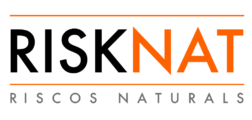Offshore groundwater systems (OGS) can be regarded as a resource but, when polluted, can also represent a hazard owing to the transport of nutrients, metals, carbon, microbes, etc., into the continental shelf.
Our objectives are
- to determine to what extent the exploitation of OGS could affect coastal ecosystems and to assess their geometry, distribution, characteristics and flow dynamics;
- to understand the effect of lixiviates carried by submarine groundwater discharges into the continental shelf, and their potential effect on submarine ecosystem. We target several study sites in the Mediterranean Sea.
Collaborations
This research benefits from cross-boundary multidisciplinary collaborative efforts through the INTERREG funded project SHAREMED. In collaboration with OGS, U. Malta, MIO, NIB and other partners, we developed an Atlas of threats and risks to the Mediterranean Sea environment and we started the development of a system of observing systems to model transport of pollutants and nutrients. Also, as a collaborative effort with colleagues from Università ta’ Malta-UM (Aaron Micallef) and Geomar (Marion Jegen, Amir Haroon) we have modeled and quantified the discharge of continental water into the continental shelf in Malta, which we are planning to extend to the Catalan coast through the new HORIZON funded projects AquaINFRA and iCatmar (Catalan Institute Marine Governance). Within the framework of AquaINFRA and in collaboration with CREAF (Lluís Pesquer, Kaori Otsu, Ester Prat) and Università ta’ Malta-UM (Aaron Micallef), we continue the development of the nutrient and pollutant transport model, focusing on riverine and groundwater input. In parallel to this, Xavier Garcia forms part of the management committee of the COST funded action OFF-SOURCE, which focuses on studying the exploitation of off-shore fresh water deposits as a resource.



